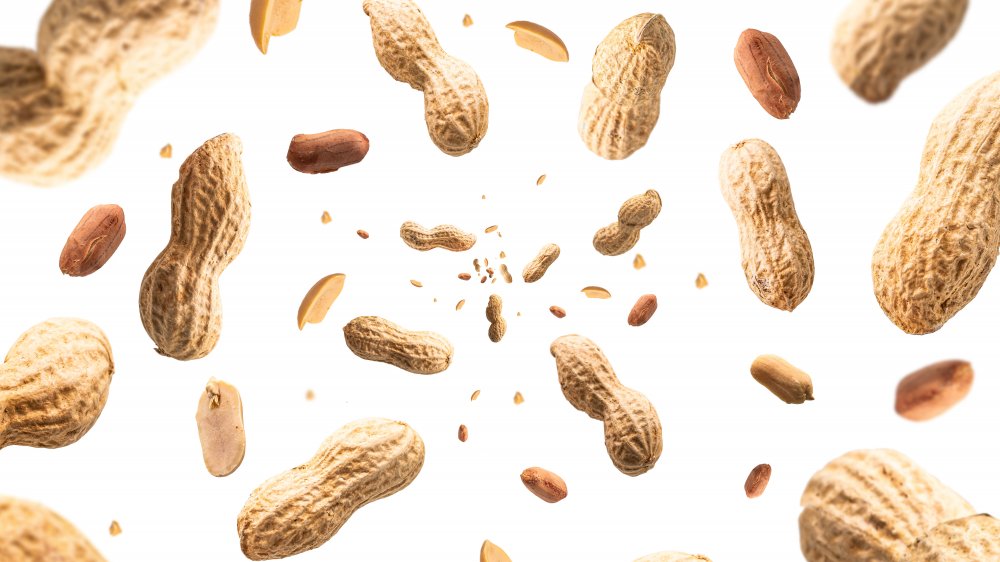When You Eat Too Many Peanuts, This Is What Happens To Your Body
For many people, peanuts are a cheap and healthy snack. Despite their name, they are actually a member of the legume family, along with chickpeas, lentils, and other beans, and they can be a satisfying substitute for chips or other processed foods when you are craving a crunchy snack.
While they are generally healthy, however, they are also fairly high in calories. Just one handful of peanuts contains around 170 calories, according to Livestrong, so it's easy to overdo it if you are snacking without paying attention. Many people don't realize that peanuts are high in fat as well, with around 15 grams of fat per ounce. Although they are mostly made up of unsaturated fats, they do also contain some saturated fats, which are high in calories and can lead to weight gain, high cholesterol, and even artery blockages.
People should also be mindful of the types of peanuts they are consuming. While peanuts are naturally low in sodium, many common brands contain added ingredients like salt, and too much extra sodium can contribute to high blood pressure.
Peanuts can have unintended negative health effects
Peanuts are also a source of phytate, which is known as an anti-nutrient because it actually inhibits the body's ability to absorb other important minerals. Phytates bind to nutrients in the digestive tract and prevent the full absorption of essential minerals like iron, zinc, and calcium. Additionally, they can interfere with certain digestive enzymes, which reduces the body's ability to break down proteins, fats and carbs, and leads to certain digestive problems, like gas and bloating, per Precision Nutrition.
Additionally, peanuts contain a high level of omega-6 fatty acids, but not a comparable amount of omega-3s, and an imbalance in these two essential polyunsaturated fatty acids has been known to cause inflammation. Increased inflammation is a risk factor in a number of health problems, including arthritis and cancer, and it has also been linked to insulin resistance and obesity, per University Health News Daily.
Of course, peanuts can also be very dangerous for the subset of the population that suffers from peanut allergies. Nut allergies can cause hives, nausea, cramping, shortness of breath, and in extreme cases, anaphylaxis, according to the Mayo Clinic. Some cases can be so severe that they can lead to hospitalization, or even death, if not immediately treated.

